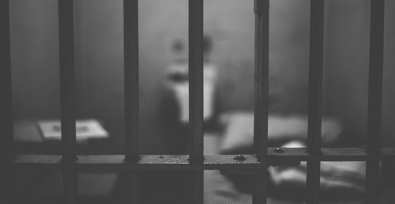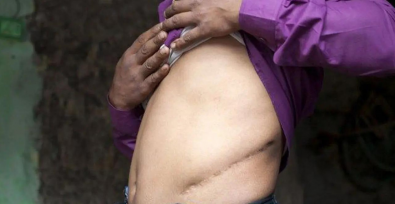“I could hear ‘crunch, crunch, crunch. I couldn’t feel anything, but I could hear the crunch.”
Blas Sanchez’s harrowing ordeal at Hickman’s Family Farms is illustrative of the grave dangers faced by incarcerated workers. Assigned to a composting machine without proper training, Sanchez lost his leg in a horrific accident.
In the U.S., hundreds of thousands of incarcerated workers endure similar risks each year, performing tasks ranging from firefighting to heavy machinery operation with little oversight or protection. A 2-year investigation by the Associated Press has unveiled a troubling pattern of serious injuries and fatalities among incarcerated laborers – who have no choice but to work. In California alone, over 700 work-related injuries were recorded between 2018 and 2022, with documents revealing cases of severed body parts, deep cuts, and crushed hands. At Hickman’s Family Farms, where logs obtained by the AP listed about 250 prison worker injuries during the same timeframe, serious cases ranged from amputations to severe burns.
Exploitation and injustice
Forced prison labor, a multibillion-dollar industry, traces its roots back to slavery and continues to disproportionately impact people of color. Despite laws ostensibly designed to protect workers, incarcerated individuals are not treated as workers and often denied basic rights and protections, including workers’ compensation and health and safety standards.
Margie Mason and Robin McDowell for the AP report on a crew of incarcerated workers sent to mop up a wildfire hotspot.
Rebecca Leavitt said when she and her all-woman team arrived at the site with only classroom training, they did a “hot foot dance” on smoldering embers as their boss yelled “Get back in there!” One crew member’s burned-up boots were duct-taped back together, she said, while others cried out in pain as their socks melted to their feet during nine hours on the ground that paid about $1 an hour.
Two days later, Leavitt said the women finally were taken to an outside hospital, where doctors carved dead skin off the bottoms of their feet, which had sustained second-degree burns. Because they were prisoners, they were denied pain medicine.
“They treated us like we were animals or something,” said Leavitt, adding that the women were afraid to disobey orders in the field or report their injuries for fear they could be sent to a higher-security facility. “The only reason why any of us had to tell them was because we couldn’t walk.”
The AP’s findings link some of the world’s largest companies to prison labor, with workers being paid pennies an hour or nothing at all for their labor. The system operates with little oversight.
Just this week, Senator Cory Booker chaired a meeting of the Senate Judiciary Subcommittee on Criminal Justice and Counterterrorism to examine prison labor stating, “Most of us have no idea how the slave labor contributes to our nation’s economy.”
At the hearing, Professor Andrea Armstrong reported that, “Refusing to work in dangerous conditions could even lead to new criminal charges and new sentences in some states.”
Calls for reform
Efforts to challenge the 13th Amendment, which permits slavery as punishment for crime, are gaining traction. Nearly 20 states are working to bring the issue before voters, advocating for legislative amendments to end the severe exploitation of incarcerated workers.
In response to inquiries, some companies implicated in the investigation have expressed a commitment to ensuring ethical labor practices. However, advocates emphasize that concrete action is needed to address systemic issues within the prison labor system.
As we confront the realities of prison labor, it is imperative to prioritize the safety and dignity of incarcerated workers. Behind every statistic lies a human story, a life forever altered by the perils of exploitation and neglect.
But we cannot protect anyone who is deemed a “slave” by law.
Together with partners, our community is demanding all states and the federal government to explicitly outlaw slavery and involuntary servitude as punishment for a crime in the U.S. and state constitutions.
We know you agree slavery belongs in the past. Let’s make sure the U.S. hears our collective call – add your voice to the campaign today.







Freedom United is interested in hearing from our community and welcomes relevant, informed comments, advice, and insights that advance the conversation around our campaigns and advocacy. We value inclusivity and respect within our community. To be approved, your comments should be civil.